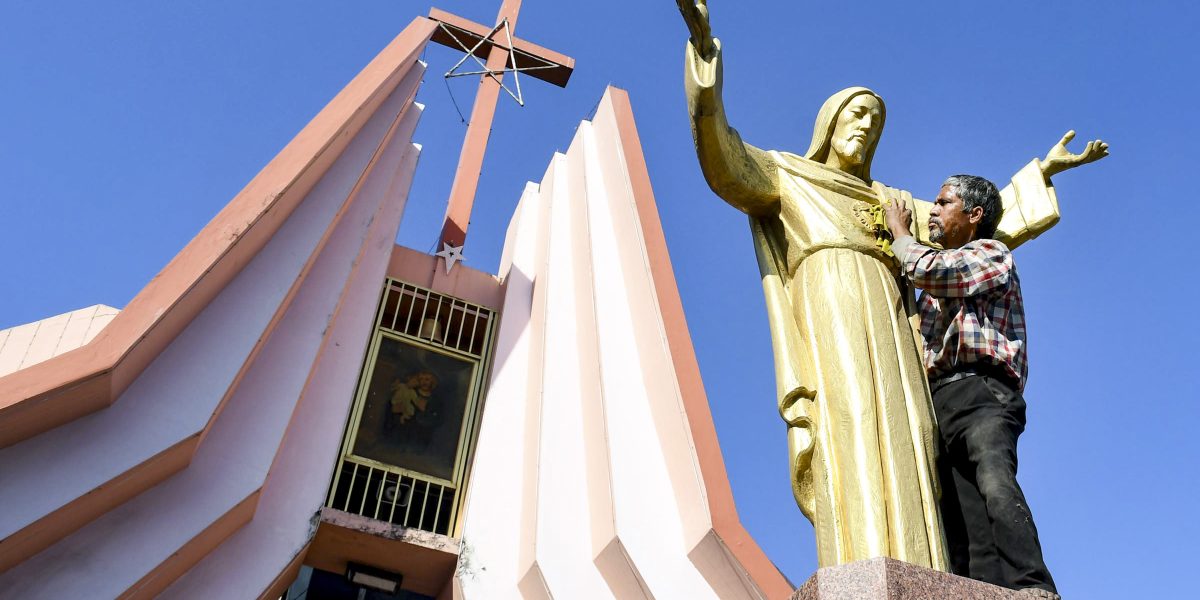
By Z
Ishrat Jahan is an advocate, activist and a political leader, numerous photographs of her over the years, always show her smiling. Often surrounded by groups of people, sometimes at interfaith gatherings, or speaking at a public function, or simply surrounded by school kids, Ishrat Jahan always has a smile on her face in these photos. She also seems to be a natural leader, a people’s person, qualities that ensured she was elected as a municipal councillor in 2012 on a Congress ticket. A trajectory that can put her in one of those ‘40-under-40’ list of achievers, however, Ishrat Jahan has been in jail since February 26, 2020. She has been accused of being a ‘mastermind’ of the northeast Delhi riots conspiracy case and has been charged under the Unlawful Activities (Prevention) Act (UAPA). Jahan had been granted a short interim bail, for her own wedding on June 12, 2020. She returned to jail, just days after the nikah, a newly wed with the henna on her hands still bright. Isolated inside Mandoli jail, Yoga, readings of books and the Quran help her survive.
There were a few thousands at the Khureji protest last year. However, Ishrat Jahan, a resident of Khureji, is perhaps the only one who was a known local political figure. She had been a local Congress councillor from 2012-17, and had reportedly also been associated with the All India Congress Committee (AICC). That she was a public figure, she had once said, could be one of the reasons why she was singled out from a protest that well over a thousand women attended. While some Congress leaders from Delhi had made a few statements when she had been arrested initially, most of them have been silent since then. Ishrat, has also not really got the massive public campaigns of support that some of her co accused have attracted. Anil Chowdhary, president, Delhi Pradesh Congress Committee had then stated, “We stand firmly behind Ishrat Jahan and will do everything required to ensure she is out of jail.”
However, the public statements of solidarity seem to have faded away since then. After spending a month in judicial custody, Ishrat along with 4 others were granted bail by Additional Sessions Judge Manjusha Wadhwa on March 21, 2020. The same day she was implicated in FIR number 59 of 2020, and re-arrested. This time she was charged under the draconian UAPA. It has been 15 months since Jahan has been incarcerated. Her bail application will be heard before the Karkardooma court on Friday July 23. A timeline of her case under two different FIRs may be read here.
Faith in judiciary
On the day of her wedding, Ishrat Jahan, a bride on bail as it were, had been positive and reposed her faith in the judicial system, she had hoped that she would be granted bail soon. In an interview to The Quint that day, she had said she was the first to get bail for her wedding, and had perhaps read that as a positive sign, as she was sure that the courts will see her innocence. “I am a local resident, and had gone to the protest where there were over a thousand women,” she had said she was innocent.
Beaten and abused by other inmates
Ishrat had told the courts that she was “beaten and abused” by inmates, in her cell in Mandoli jail. Of all the 23 young persons brutally incarcerated following the dramatic anti-CAA/NPR/NRIC protests in 2019-2020, she is the only woman under trial at Mandoli. Her life is lonely and she has been the target of attacks. The court had then told the jail authorities in December 2020, to take steps to ensure Ishrat’s security in jail. Her family had alleged that Ishrat had been attacked, her clothes torn, head smashed against the wall several times. Her mental, emotional and physical health is likely to have been affected under such circumstances.
According to her sister Sarwer, Ishrat has been “very active and healthy all throughout” however the “grave trauma and stress of this case being falsely put on her she has become a patient of high BP and other psychological health related issues inside the jail”. Ishrat has been asking for medicines, however, he sister says all she has been given in jain is a “a paracetamol for all issues.” She is also “confined to the barrack due to the Covid-19 restrictions inside the prison; there is no ‘time out’ given even for an hour in 24 hours to step outside for fresh air” stated her sister. This isolation, and lack of movement, her family fears, can aggravate Ishrat’s health problems. Sarwer shared that even in the peak summer, the cell had coolers placed, which were ineffective as they had no water supply. The drinking water dispensers are kept in the sun, and inmates had no access to cool water in the summer.
Not one to be sitting idle even under trying circumstances, Ishrat, has “started teaching yoga since last month to women lodged with her in the barrack” shared Sarwer. So now, the lawyer-activist “spends her whole day doing yoga, reading a few books and the Quran,” said her sister. Though there are still many moments, when tears flow as freely from her eyes, as the prayers do from her lips. For Ishrat, as it is for all political detainees, the time she spends in jail is a massive punishment in itself. Outside the jail, there is her family, and an extended family of friends and well-wishers who are also undergoing a similar trauma. Her widowed mother, her sister, and her husband now just await her return patiently.
This story first appeared on cjp.org.in





